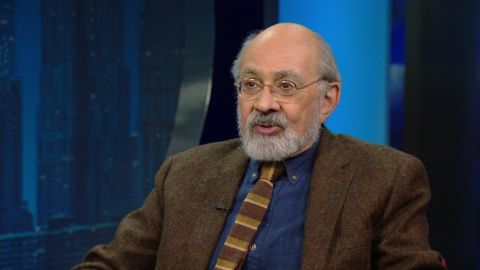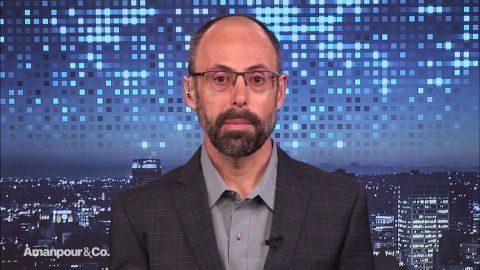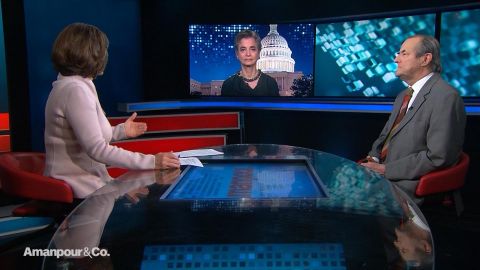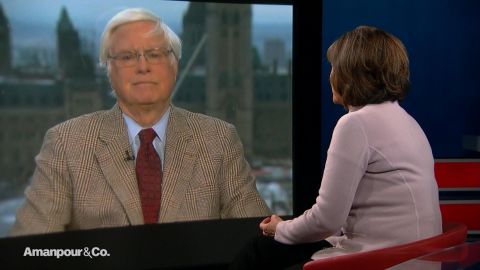Read Transcript EXPAND
CHRISTIANE AMANPOUR: First, I just want to get your take on the mood, the grief in Canada about what’s happened. It’s the largest air disaster to affect Canadians since 1985, and we’ll get to that in a moment. But it’s a huge, huge, terrible blow for your country.
MICHAEL KERGIN: That is correct, Christiane. I don’t think the camera can show out the window behind me. But I’m right in front of the Canadian parliament building where the flag obviously is flying at half-mast. No, this is a tragedy for Canadians because you know we’re a country of fairly recent immigrants. And the Iranian community here has made a tremendous contribution, both intellectually and in economics and in a business way. And so, each community across the country has friends or associates or people who they’ve worked with who have been touched by this tragedy.
So, right across the country, Ottawa, Edmonton, Toronto and so forth, flags are being lowered and people are being — suffering a great deal, the tragedy. Very young people, mostly young people whose careers and futures have been abruptly terminated.
AMANPOUR: So, that’s very interesting because we obviously looking at these sad pictures of some of the victims. We can see the candles that are being lit in memory. And it’s really important that you focus on the fact that there were young people. And just explain, perhaps for our viewers, you know, they’re called Canadians or Iranians, but was this also a lot of Canadian-Iranians so to speak?
KERGIN: That’s correct. And I expect — you know, we talk about the 63 odd Canadians but I suspect there are other Iranians on board who were coming back to Canada to study, who have had the student visas perhaps or might have, you know, landed immigrant status for a time to become Canadian later on. So, indeed, those who we say are Canadians, they’re Canadian-Iranians. We, in Canada, tend to sometimes hyphenate our first-born immigrants. You know, Canadian-Iranians. Iranian-Canadians. And, indeed, because as I said earlier, we are a fairly recent immigrant country, there is a lot of empathy for people who’ve fled places or who have come from other places to study.And then sometimes make their whole life in Canada. So, yes. This is something which really does cut to the bone in Canada.
About This Episode EXPAND
Former Canadian Ambassador Michael Kergin discusses the human cost of this week’s diplomatic drama. Then, experts Richard Dalton and Barbara Slavin explain the current state of affairs between the U.S. and Iran and Ervand Abrahamian tells Walter Isaacson about the long and complicated history behind the two countries’ relationship. Plus, anthropologist Daniel Fessler makes the case for kindness.
LEARN MORE



